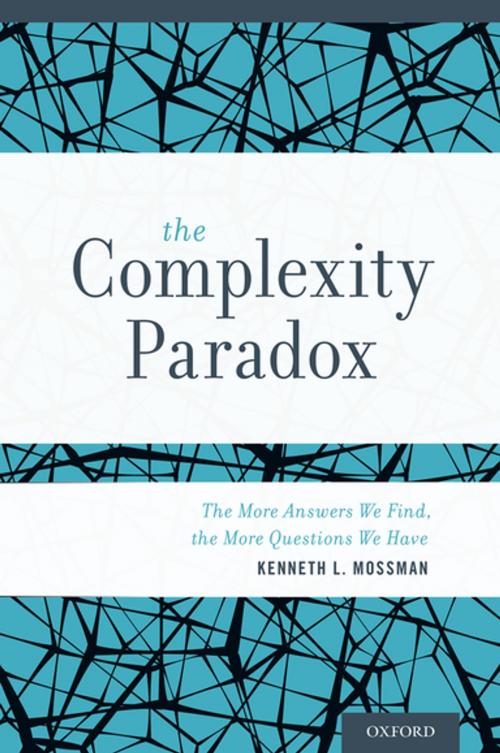The Complexity Paradox
The More Answers We Find, the More Questions We Have
Nonfiction, Health & Well Being, Medical, Medical Science, Pharmacology, Science & Nature, Science, Biological Sciences, Biology| Author: | Kenneth Mossman | ISBN: | 9780199330362 |
| Publisher: | Oxford University Press | Publication: | August 26, 2014 |
| Imprint: | Oxford University Press | Language: | English |
| Author: | Kenneth Mossman |
| ISBN: | 9780199330362 |
| Publisher: | Oxford University Press |
| Publication: | August 26, 2014 |
| Imprint: | Oxford University Press |
| Language: | English |
Living systems exhibit a fundamental contradiction: they are highly stable and reliable, yet they have the capacity to adapt to changing environmental conditions. This paradoxical behavior arises from the complexity of life--a high degree of order and cooperation that emerges from relatively simple interactions among cellular components. The Complexity Paradox proposes inventive, interdisciplinary approaches to maintaining health and managing and preventing disease by considering the totality of human biology, from the cellular level on up to entire populations of individuals. From the perspective of complexity, which acknowledges that there are limits to what we can know, Kenneth L. Mossman opens the door to understanding essential life processes in new and extraordinary ways. By tying together evolution, functional dynamics, and investigations into how the body processes energy and uses genetic information, Mossman's analysis expresses a unified theory of biology that fills a critical niche for future research in biology, medicine, and public health.
Living systems exhibit a fundamental contradiction: they are highly stable and reliable, yet they have the capacity to adapt to changing environmental conditions. This paradoxical behavior arises from the complexity of life--a high degree of order and cooperation that emerges from relatively simple interactions among cellular components. The Complexity Paradox proposes inventive, interdisciplinary approaches to maintaining health and managing and preventing disease by considering the totality of human biology, from the cellular level on up to entire populations of individuals. From the perspective of complexity, which acknowledges that there are limits to what we can know, Kenneth L. Mossman opens the door to understanding essential life processes in new and extraordinary ways. By tying together evolution, functional dynamics, and investigations into how the body processes energy and uses genetic information, Mossman's analysis expresses a unified theory of biology that fills a critical niche for future research in biology, medicine, and public health.















